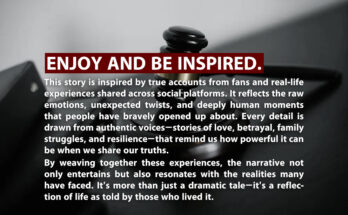In middle school, there was a boy who made my life miserable. He mocked my eyebrows and turned the other boys against me, making every day feel like a battle. One Friday, he offered a deal: buy him pizza, and he’d stop teasing me for a week. I did, and he kept his word. That tiny truce became a ritual. I’d ask him every Friday what he wanted—hot fries, cafeteria milk, even colored pencils. It wasn’t friendship, just a transaction for peace. But beneath the cruelty, I started to wonder what made him act that way.
Our school had a strict uniform policy—$25 for a shirt, $15 for pants. On the first day of eighth grade, he showed up in jeans and a tee and was sent to the office. My aunt happened to be there, dropping off my lunch. She saw him crying and asked what was wrong. His parents couldn’t afford the uniform and weren’t coming. Without hesitation, she bought him a hoodie, a few shirts, and a long sleeve. He said he had pants at home. He hesitated, then accepted. I watched him thank her with a softness I’d never seen before.
That moment shifted something in me. I’d spent years fearing and resenting him, but now I saw a kid who was hurting too. My aunt didn’t ask questions or seek credit—she just saw someone in need. Her kindness cracked open a door I hadn’t known existed. The bullying faded after that. We never became friends, but the tension eased. I stopped seeing him as a villain and started seeing him as a boy trying to survive in his own way.
Thirteen years later, I found out he runs a nonprofit that helps kids get access to books. I was stunned. The boy who once mocked me now dedicates his life to helping children learn. I don’t know what changed him—maybe it was growing up, maybe it was my aunt’s gesture, maybe something else entirely. But I believe people can change. And I believe kindness plants seeds we don’t always see bloom until much later.
I’ve forgiven him. Not because he apologized, but because he didn’t become the person I feared he would. He grew into someone who gives, someone who uplifts. I think about those Fridays, the pizza, the hot fries, the colored pencils. I think about my aunt’s quiet generosity. And I realize that even in the ugliest moments, there were glimpses of grace. We were just kids, trying to figure out how to be.
I still carry the scars of those school days, but they’ve softened. They remind me that people are complicated, and that sometimes, the ones who hurt us are hurting too. I don’t romanticize what happened, but I honor the growth. And I’m grateful—for my aunt, for the lessons, and for the strange, winding path that led a bully to become a helper.


